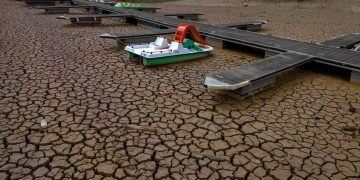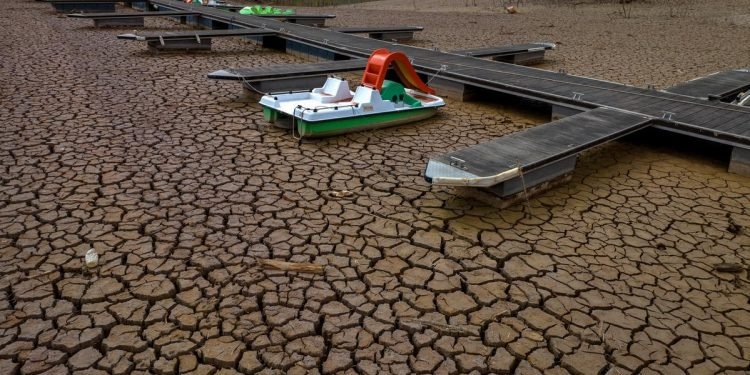The drought emergency in Catalonia, Spain, is exacerbating existing concerns about climate change and its impact on water resources. With 40 consecutive months of below-average rainfall, the region faces an unprecedented challenge, prompting officials to enforce strict measures on water usage.
The Catalan government’s three-phase plan aims to progressively reduce daily water consumption per person, reflecting the severity of the drought. The impact extends beyond individual households, with significant cuts planned for agriculture, livestock, and industry. Fines for water-related offenses, such as washing cars or watering gardens, underscore the urgency of the situation.
Experts emphasize that the current drought is not merely a natural occurrence but aligns with dramatic projections of climate change. The Mediterranean region, including Spain, is identified as experiencing potentially critical drought conditions due to rising temperatures and reduced rainfall.
The crisis prompts a reevaluation of water management strategies, necessitating a balance between conservation efforts, sustainable practices, and potential technological interventions. As Catalonia grapples with the immediate consequences, the situation also highlights the need for international cooperation to address climate-related challenges affecting water resources globally.























